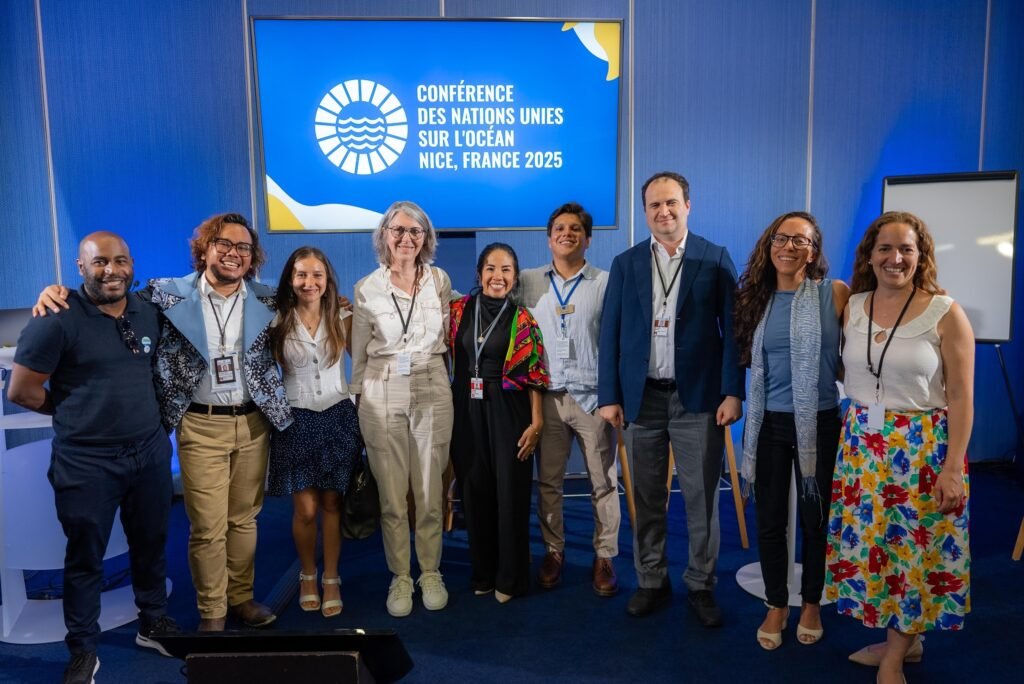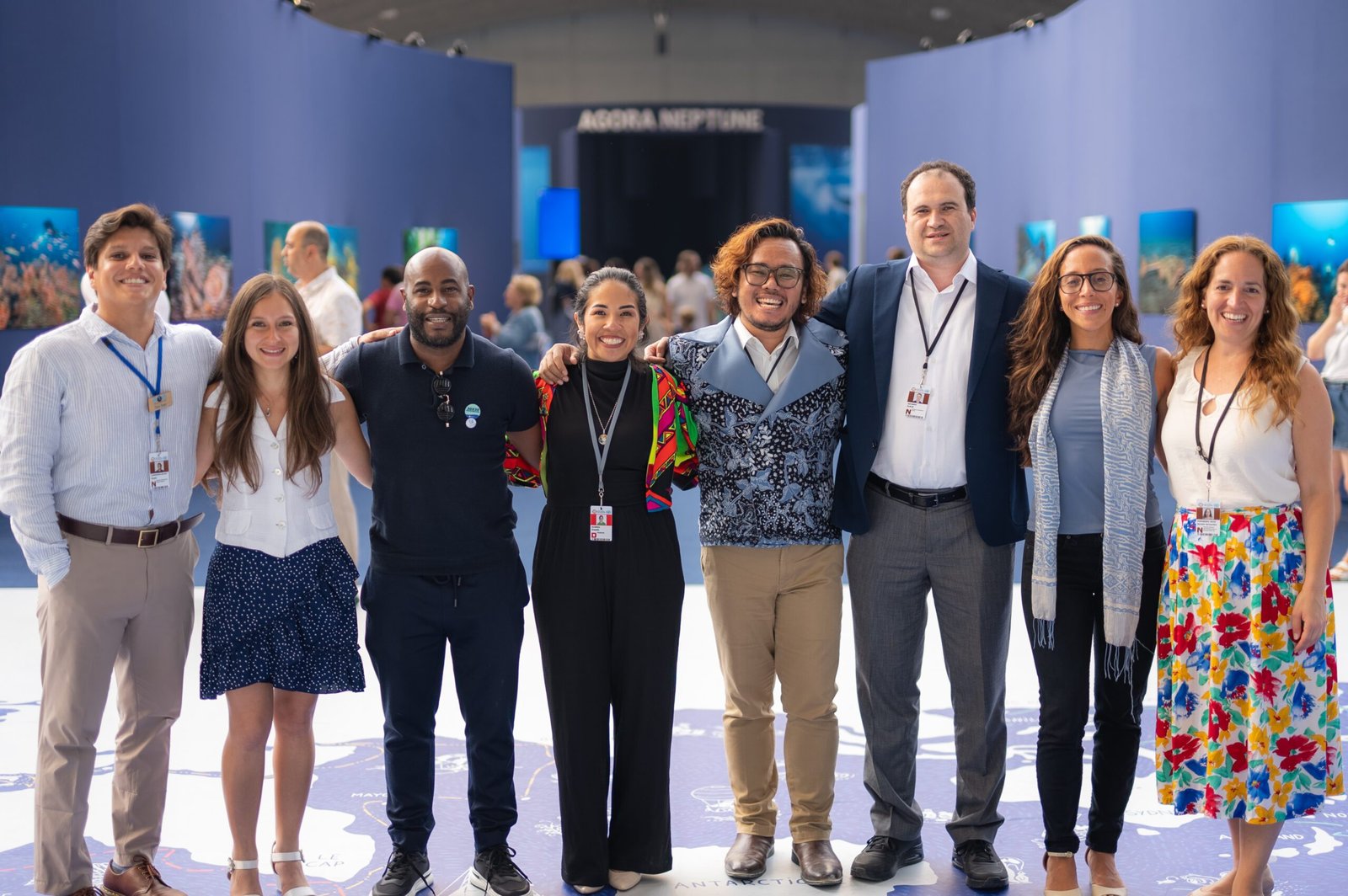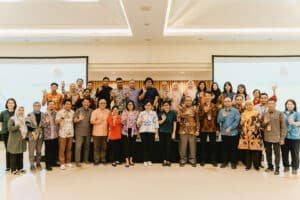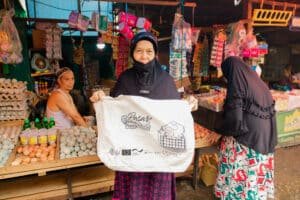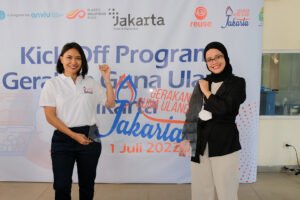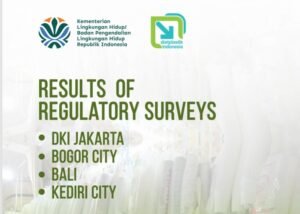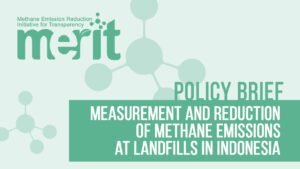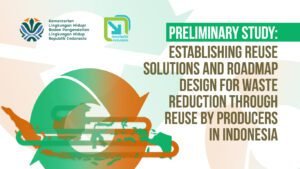Nice, France / Jakarta, Indonesia — 14 June 2025 — This past week, Rahyang Nusantara, Deputy Director of Dietplastik Indonesia, PR3 the Global Alliance to Advance Reuse, and 2024 PIPA Ocean Fellow, joined global leaders, policymakers, scientists, and youth advocates at the third United Nations Ocean Conference (UNOC3) held in Nice, France. Representing both Indonesian civil society and the Asia Reuse Consortium, Rahyang delivered a powerful call for upstream action to tackle marine plastic pollution and presented community-rooted solutions from Indonesia to an international audience.
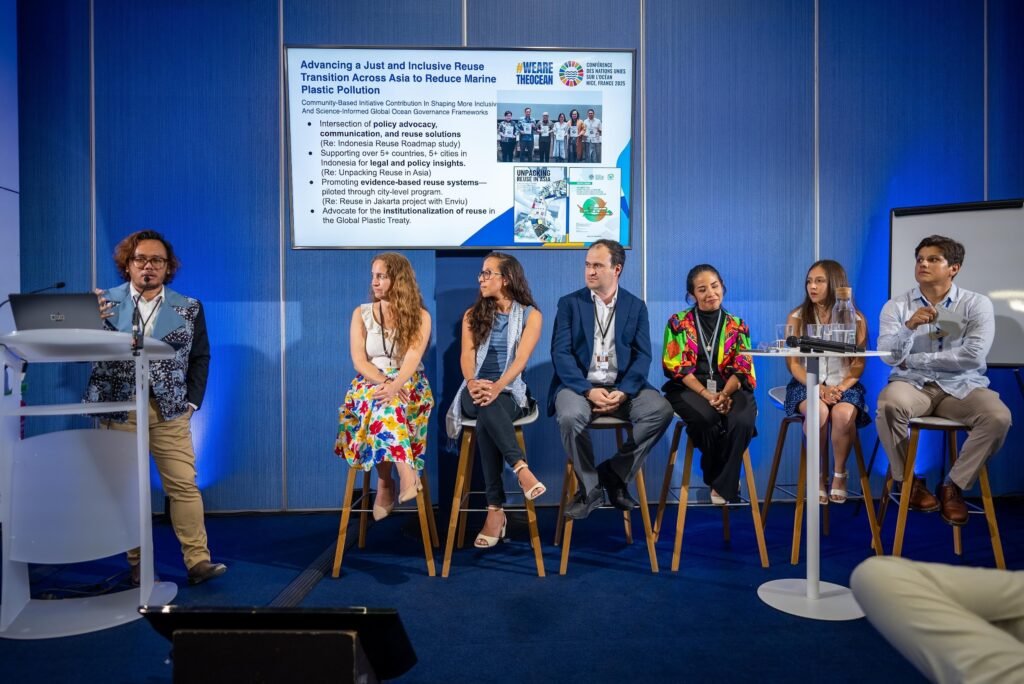
Photo credit: Dietplastik Indonesia/Alexandre Dumort
At multiple official sessions and side events, including panels hosted by the UN Environment Programme, World Economic Forum, the Scientists’ Coalition, and PIPA Ocean, Rahyang underscored the importance of reuse systems as a strategic and equitable solution to prevent ocean plastic pollution. Drawing on over a decade of experience with grassroots environmental campaigns and city-level policy reform, Rahyang urged negotiators to prioritize ambitious measures ahead of the final round of Global Plastics Treaty talks (INC-5.2), which will be held this August in Geneva.
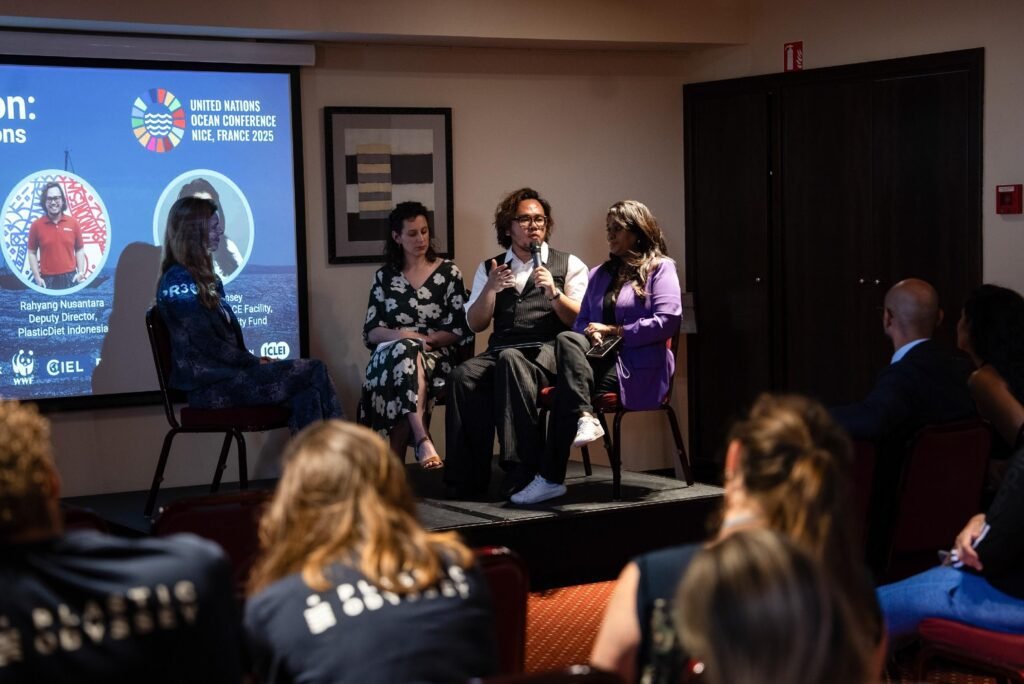
Rahyang’s participation during Searious Business side event in Hyatt Regency Nice Palais de la Méditerranée, Nice, France, on June 12th
(Photo credit: Dietplastik Indonesia/Alexandre Dumort)
“To stop plastic from reaching the ocean, we must stop making it disposable in the first place. Embedding reuse in Extended Producer Responsibility—backed by global standards like those from PR3—is how we shift from cleanup to real prevention.”, said Rahyang during Searious Business side event in Hyatt Regency Nice Palais de la Méditerranée, Nice, France, on June 12th.
“Reuse is not only a concept—but also it’s a proven, community-driven solution already protecting our oceans. But without global frameworks like the Plastics Treaty recognizing and resourcing these efforts, we risk sidelining real impact. It’s time to scale what’s working from the grassroots.” said Rahyang during the side event in La Baleine, Palais des Expositions, Nice, France, on June 13th, along with seven PIPA Ocean fellows from Latin America, Southeast Asia, Central Asia, and the Pacific.
“To solve the plastics crisis, we must go beyond recycling and bans—reuse systems are key to reducing waste at the source. By replacing single-use items, reuse not only drives circularity but also prevents plastic leakage into our oceans.”, added Rahyang.
During the side events of UNOC3, Rahyang shared Indonesia’s national progress in advancing reuse solutions, including regulatory reforms and reuse business pilots in Jakarta. He also emphasized the role of informal waste workers, youth engagement, and science-based policymaking as essential pillars of fair and inclusive treaty implementation.
“Indonesia has already shown that city-level bans, business transformation, and citizen participation can shift the system. The Plastics Treaty must scale these efforts globally. Without upstream regulation and financing, we risk locking in pollution for decades to come,” Rahyang added.
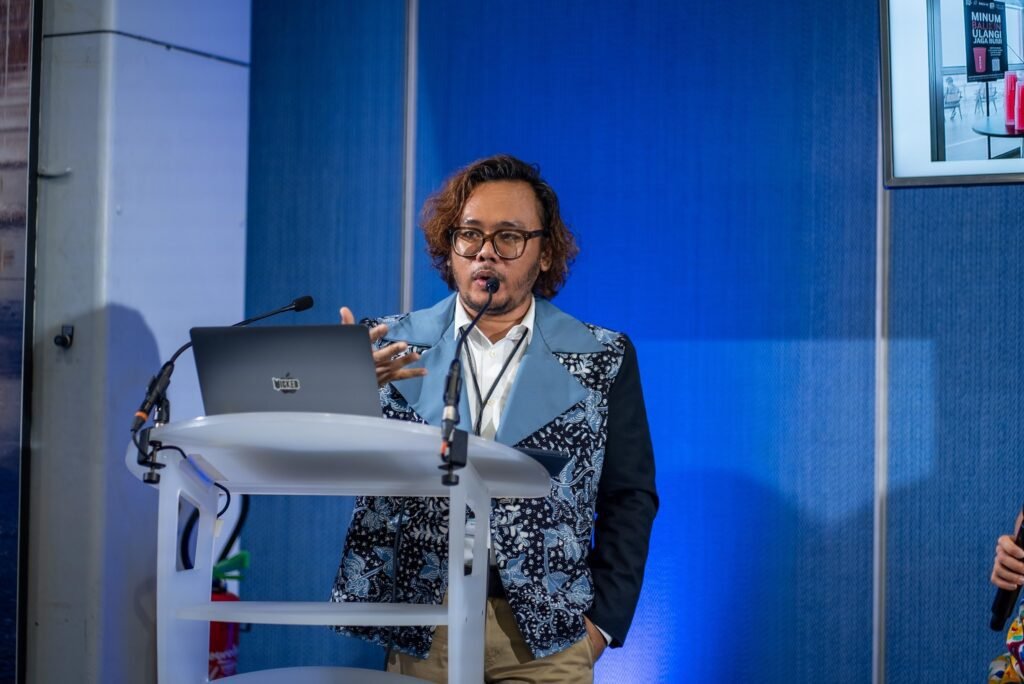
Photo credit: Dietplastik Indonesia/Alexandre Dumort
Even though, Rahyang expressed disappointment that Indonesia has not joined the list of endorsing countries on “Nice Wake-Up Call,” a high-level declaration endorsed by 95+ countries pushing for strong treaty provisions including caps on virgin plastic production, mandatory product redesign for reuse and durability, and the establishment of global EPR systems with eco-modulated fees. He stated, “Indonesia has made real progress at the local level, but without national-level political will to align with ambitious global initiatives like the Nice Wake-Up Call, we risk sending mixed signals. Our regional leadership must be matched with global responsibility.”
As the negotiations in Geneva approach, Rahyang and Dietplastik Indonesia call on national governments—especially in Southeast Asia—to step up their commitments and stand with countries demanding ambitious, enforceable treaty outcomes.
——————
About Dietplastik Indonesia: A non-profit driving systemic change to phase out single-use plastics, scale up reuse in Indonesia, and advocate methane emission reduction from the waste sector. Since 2013, we’ve led national advocacy—helping 100+ cities adopt plastic bans—and built inclusive solutions like the Plastic Free Market and Reuse Movement. We also tackle climate and pollution at the source by promoting source-level organic waste management—ensuring waste is not only reduced but also kept from being mixed and mismanaged. Our mission are to stop plastic pollution and to cut greenhouse gas emissions by rethinking how waste is produced, consumed, and managed, while driving a cultural and structural shift—where reuse becomes the norm, waste is prevented at the source, and local communities are empowered to lead a just transition towards a cleaner, more sustainable future. Media Contact: contact@plasticdiet.id | @iddkp | www.plasticdiet.id
About the PIPA Program. The Future Leaders Invitation Programme/Programme d’invitation des personnalités d’avenir (PIPA) is an initiative by the French Ministry for Europe and Foreign Affairs, established in 1989. Each year, it invites approximately 75 emerging leaders from around the world—including politicians, civil servants, academics, entrepreneurs, and civil society actors—to France for a week-long program. The goal is to foster high-level professional exchanges and build lasting ties between France and future global influencers.
